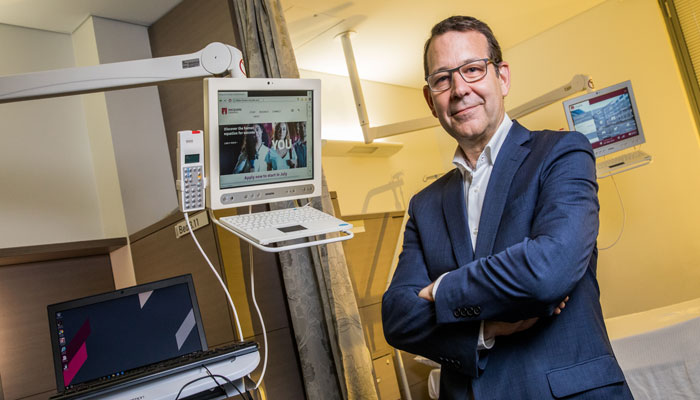
AI thus goes much further than current data analytics methods, allowing computers to use data to build and adapt models for everything from human speech recognition through to complex treatment planning challenges for cancer patients.
“This funding must be used to truly transform healthcare, in a moon-shot where we apply next-generation technologies in ways that improve patient care, improve health outcomes and boost efficiency,” said Coiera, who is Director of Health Informatics at the Australian Institute of Health Innovation.
Australia already holds a competitive advantage in healthcare; investing in AI-driven health applications is a chance to improve our world-class health system, already under pressure, while also developing an industry that is in huge demand globally, according to Coiera.
The market for digital health is expected to exceed USD $379 billion by 2024, showing that there’s huge potential for investment in AI technologies in health to deliver export value to Australia.
Diagnosis is only the beginning of the potential for AI in healthcare however.
Digital scribes, Google Home and smart glasses
One example of a revolutionary application of AI in healthcare will be the development of the digital scribe, a tool with the potential to transform routine clinical practice.
“Most of us have had the experience of sitting with a GP who is tap-tapping on their keyboard while we talk to them, making notes about our history or examination – which is important but takes their attention away from us,” Coiera says.
Scribes are an emerging technology being developed for healthcare, says Coiera. Operating similarly to Google Home or Alexa, digital scribes will listen in to consultations with patients, and allow doctors to use voice commands and pre-assigned gestures to automatically create a record of what has been discussed. Such systems might use smart glasses, or use sensors to record the results of a blood pressure or temperature measurement.
As they become more sophisticated, these clinical assistants will be able to do even more, prompting clinicians to ask additional questions, order additional tests or even suggest alternate treatment plans, based on analysis of the data from similar past patients. “Tools like this prioritise care of the individual over documentation,” he says.
These tools would need extensive research before being launched into practice to identify their potential benefits and shortcomings, he adds, and focussing on quality and safety.
Frontline Medical care
What’s particularly exciting about the development of AI-enabled health is the implications for individuals and their families, Coiera says.
“Things are already moving very fast; most Australians now have some kind of a digital health record, and everyone has the opportunity to sign up to the national health record system. Why shouldn’t each Australian, in five years time, have their own intelligent personal health navigator? It will remind you to take medication, or have a scheduled screening test, or if you have a chronic disease like diabetes perhaps it can optimise your insulin,” he says.
Personal health assistants can also be linked into the wider health system, “We could focus on improving the capacity of Australians to navigate the health system and to manage their health,” he says. “AI-based digital health tools could suggest the appropriate person to see for a second opinion if you’re concerned about a diagnosis; perhaps it can answer basic health questions and recommend when to see a doctor.”
Changing the clinical workforce
Rather than reduce demand for clinical staff, Coiera believes that AI has the potential to fundamentally change the nature of medical work for the better. “Every doctor wants to give their patients the most optimal treatment - and that's hard to do unless you have extensive information about both the illness and the patient,” says Coiera.
“But if AI tools can access the huge and growing collection of medical records, we will be able to empower people to create a truly ‘learning health system’ – which applies the best and most appropriate knowledge to an individual patient’s care.”
“This really is the basis of truly personalised medicine. People think that personalised or precision medicine is just about targeting healthcare to your genetics, but really it is much larger than that. It’s about finding patterns in big data and applying the treatments that most closely suit your personal profile, your symptoms and so on – and it’s going to take AI for us to be able to do that.”
“AI could take on the essential but mundane, repetitive parts of a doctor’s job, freeing them to focus on the art of medicine, supported by technologies that give them direct access to a huge amount of knowledge that was previously hidden from them,” he says.
“That means one of the big challenges for healthcare is to prepare for the coming AI revolution,” he says, adding that everyone involved in health – from patients to doctors, nurses and other health staff, will see their role transformed.
“We need to be on the front foot and get the clinical profession reimagining how they will work, rather than reacting to changes imposed on them by technology,” he says.
“If we get this right, Australia will not just have one of the most modern and agile health systems in the world. Embracing the coming AI revolution may make Australia a world leader in the development and export of these transformative technologies.”



